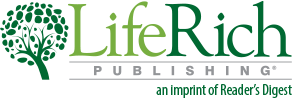Author Resources
Writing Self-Help Books
The self-help book industry has boomed in recent years, most likely due to the increased pace of our lives thanks to technology. People are constantly searching for ways to improve their lives, ranging in topics from spiritual enlightenment or computer knowledge.
Research and Credibility
The business of writing self-help books is about establishing credibility as an expert in your subject area. If you expect readers to seek your book for advice, you need prove you aren’t just an amateur. So, it’s important to complete extensive research. The use of statistics can help you make points, show how certain techniques work, or let your readers know they’re not alone.
Rapport
Part of your research should include getting to know your target audience. Examine the type of person that you’ll be writing for, so you can develop a positive rapport and gain their trust by understanding who they are. It’s okay to address your reader as “you” and refer to yourself as “I.” This develops a warm and supportive tone that is imperative in a self-help book.
Organization and Thoroughness
- Assume that your reader knows nothing about the subject.
- Use a step-by-step fashion to avoid confusion.
- Remember to stay focused on the practical – inspirational sentences and theories can be helpful, but overuse may overwhelm the reader.
- Build your book around a framework of headings and subheads to help your reader easily follow along.
- Focus on just one skill or theory in each chapter, helping the reader know what they should be taking away from the material.
- Use shorter paragraphs to limit each paragraph to a single idea.
Anecdotes and Examples
People love to read about the experiences of other people, especially when it relates to a problem they’re having themselves. While narrating the anecdotes, don’t forget to apply the concrete principles of your book. This should not be a story about someone, but a firm example of how your principles work.
Exercises and Summaries
Unique to the self-help genre is the need for self-reflection and interaction; this isn’t just a leisurely read. To add value to your book, include exercises in each chapter to help readers absorb what they have just read. The model of “instruction, example, exercise” works well with self-help books.
It’s also useful for your readers if you summarize at the end of each chapter. Repetition is advisable to drive home information. This outlines the important points and helps the reader commit the information to memory.
Learn More
Whether you're curious to learn more, or you're ready to get started publishing, take the first step by claiming your free publishing guide.
Writing
Writing
By clicking “Request My Free Consultation”, you are providing your electronic signature, voluntarily authorizing LifeRich Publishing and its affiliates to contact you using a manual or automated telephone dialing system and send you advertisement or telemarketing messages by email or text/SMS/MMS message to the address and phone number you have provided above. You are not required to agree to this in order to buy products or services from Balboa Press. You certify that you are over the age of eighteen (18). You’ll get up to ten (10) messages per month. Standard message and data rates may apply. Click here to view our privacy policy.


